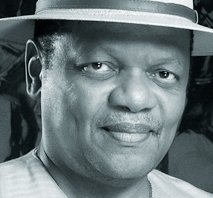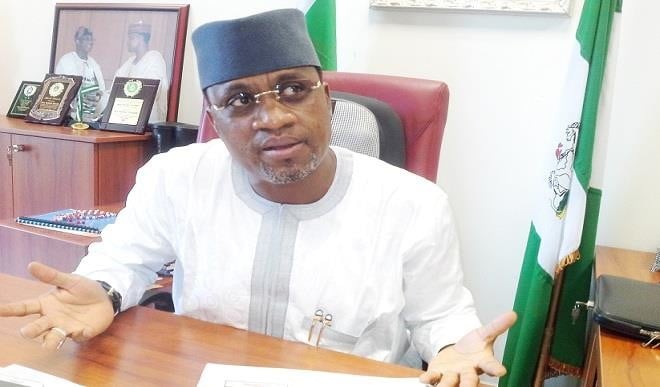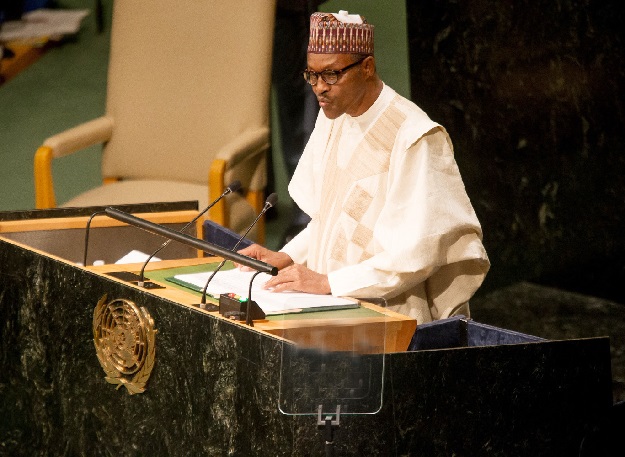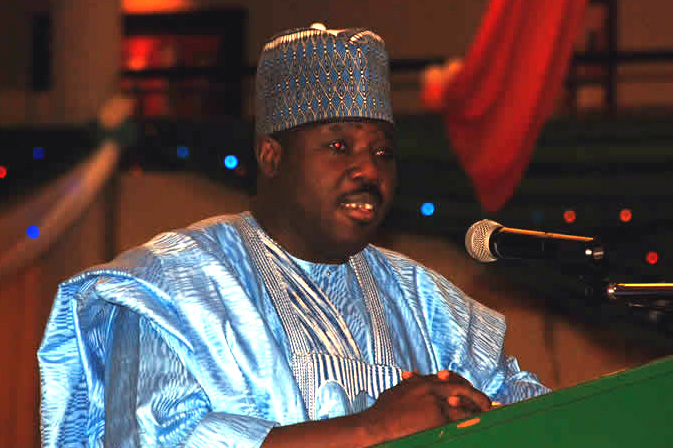I am delighted to welcome you to Standard Bank’s seventh West Africa Investors’ Conference, and I trust that you are already finding your interaction with key private and public sector stakeholders beneficial. The Standard Bank West Africa Conference continues to be one of the first choices for investors looking to receive practical and well-grounded insights into business-shaping events and trends in this sub-region and particularly in Nigeria.
At the last conference in September 2015, within a context of adjusting to a new government after the general elections earlier in the year and lower oil prices, I had highlighted the fact that many long-term investors in Nigeria had previously navigated through various booms and busts and so they were familiar with the early warning signs which signify a recession and/or a recovery cycle for our capital markets. Investors do not like heightened uncertainty because it confronts them with questions that they cannot answer and/or successfully explain.
In early September, 2015, the big unknown was the country’s economic policy direction and the likely composition of the President’s economic team. The team is now in place but the greatest policy uncertainty of all remains and that is an exchange rate policy regime that threatens the foundations of macroeconomic stability and appears to be unsustainable. The argument at stake is not whether to devalue or not because there has already been an effective devaluation. The naira prices of various capital goods are now being “correctly” priced purely on the basis of realistic expected replacement costs and so the economy is sliding towards an unpalatable scenario where the consumer suffers the “pains” of devaluation (rising prices) without witnessing any of the expected “gains” such as enhanced fiscal viability (in local currency terms at least) of the three tiers of Government and increased competitiveness of Nigerian businesses.
The much craved economic diversification can only take place meaningfully if new capital investment activity takes place to take maximum advantage of increased domestic competitiveness. Sadly, most investors here (local and foreign) are currently caught up in a frenzied pursuit of the cheapest available dollars and the difference between losing this game and winning it can be as high as a mind-boggling 50 per cent on new transactions. The pursuit of scarce forex for today‘s needs has understandably become the main game in town and this has exacerbated the pressures on Nigeria’s foreign exchange reserves and the Naira via the one-way bet that is currently on against the naira i.e. everybody wants to take foreign exchange out and nobody really wants to bring it in.
Advertisement
The excitement caused by the important development in Nigeria’s political landscape last year, where a change in government occurred at the Federal level after a keenly contested election, has given way to some apprehension surrounding whether a populist government can take the necessary tough economic policy actions that are necessary to restore confidence and stimulate badly needed new investment activity. Without investments there will be no new jobs. The uncertainty surrounding the exchange rate regime and it’s sustenance has cowered both local and foreign investment activity. It is also worrying that the Federal Government is considering further borrowing to “bridge” a fiscal viability crisis that is caused in part by its decision to sell its forex to the private sector at rates that guarantee the latter huge windfall incomes, while the cash strapped government goes a borrowing.
Clearly leaning on government’s agenda for broadening revenue sources within a context of lower commodity prices, this year’s conference has been themed: Unlocking Nigeria’s Potential…growing through diversification. The theme is timely as there is need for collective and concerted action to embark on a drive for sustainable economic growth. Nigeria’s overdependence on oil revenues could result in serious downside risks for the economy as the reality of current economic trends and indices speak for themselves. Arguably, the process of diversification will be more challenging given downbeat global economic sentiment and the need to generate enough foreign exchange in order to pay for capital intensive factors of production which can then be leveraged upon to further industrialize the economy.
Efforts at economic diversification are still at a relatively early stage of execution and are hampered by exchange rate uncertainties. This has created a very challenging backdrop for policy makers to operate against as the private sector is naturally pre-occupied at present with the short-term pursuit of scarce forex at official rates which guarantee huge windfall incomes for the lucky recipient.
Advertisement
By rising above the distractions and uncertainties surrounding the short-term foreign exchange situation and evaluating Nigeria’s long-term potential in key sectors of the economy, such as infrastructure, power and gas, consumer goods, agriculture, etc., investors will be better guided and positioned to take informed decisions on where the best long-term returns on investment will eventually emerge from.
The need for decisive diversification of the economy becomes even more apparent when we consider the yearning needs of the populace for new jobs and/or welfare packages that will help drag significant numbers of them up from below the poverty line.
Given the government’s plan to boost economic activity through extensive spending on infrastructure as well as on social projects, it potentially provides a platform through which the private sector can partner with government. It is clear to most stakeholders that government cannot attempt to close the infrastructural gap alone without recklessly expanding Nigeria’s debt burden. This makes it imperative that the government clearly articulates a policy regime which enables both the private sector and the public sector to allocate scarce resources more efficiently.
An in-depth look at the 2016 budget proposal which is still being deliberated upon in the National Assembly clearly brings up a number of opportunities for the private sector which if properly executed will slowly enable the Nigerian economy tap its potential growth opportunities and boost aggregate demand. Certainly, the increased focus and planned harnessing of all of the government’s possible revenue streams into a central pot should give rise to a better oversight of all government spending and enable a more efficient allocation of resources.
Advertisement
On the expenditure side, government plans to spend, in 2016, at least 30% above the 2015 budget. This translates into a capital expenditure budget of close to NGN1.8tr (versus NGN557bn in 2015). Even if the government is not successful in implementing 100% of the programmed capital expenditure, it is still plausible that a significantly higher expenditure on infrastructure should take place in 2016 than anything that has been spent on infrastructure in recent years. There is clearly an opportunity for private capital to leverage upon this.
During the course of the day as well as tomorrow, in addition to meeting executive management of many corporates represented here, you will also have the opportunity of interacting with stakeholders via expert roundtables on various sectors of the economy. The roundtable forums will focus on a number of issues. These include:
- Improving fiscal stability: The Resident Representative and Mission Chief to Nigeria from the IMF will help put some context around the current fiscal situation and possible options available to government on how to fund the budget.
- Increasing capacity in the power sector – the role of the private sector: The diverse array of power sector stakeholders which include various distribution companies, NBET as well as other private sector players will provide some more insight into current developments within that sector and potential opportunities.
- Developing the agricultural value chain:Given Nigeria’s need for significant investment into its agriculture sector, both in terms of R & D and capital we have assembled a rich array of agricultural sector players to help set the context. This sector is definitely very important, as it promises to help diversify future sources of foreign exchange as well as developing Small and Medium Enterprises.
- Developing the real estate sector of the Nigerian economy:With a rich array of real estate developers and investors in the Nigerian real estate industry, investors will be able to leverage on years of experience on how to play within this sector in Nigeria.
Added to the above, we hope that our wide array of invited policy makers and decision makers would provide answers to any specific and detailed longer term sectoral issues and concerns which investors might have. In order to help us with this, we have with us here the Statistician General of the Federation and Chief Executive Officer, National Bureau of Statistics Dr Yemi Kale who will address us shortly.
In addition, after the addresses from the Statistician General of the Federation we will break into a panel session where we will have representatives from the FMDQ, the NASD, NSE and SEC share their thoughts and interact on how they see Nigeria diversifying its revenue base within the current macro context.
Advertisement
Later this evening, we look forward to hosting you at our Jazz Night where we will have some time to interact in a more relaxed environment before returning tomorrow for more one-on-one interactions with corporates as well as with participants at the round table sessions.
We sincerely hope and are confident that the high quality interactions which we envisage over the course of the conference will enable you all to further deepen your understanding of our rapidly evolving economy, its challenges and many opportunities. Once again, I am delighted to welcome you to Standard Bank’s Seventh West Africa Investors’ Conference and to remind you that our market leading equities brokerage and research teams are on hand to guide and support you during your stay in Nigeria.
Advertisement
I thank you for your attention.
Being the welcome address by Atedo N. A. Peterside, chairman Stanbic IBTC Holdings Plc, at the 2016 Standard Bank West Africa Investors’ Conference in Lagos on February 23, 2016
Advertisement
Views expressed by contributors are strictly personal and not of TheCable.
Add a comment







